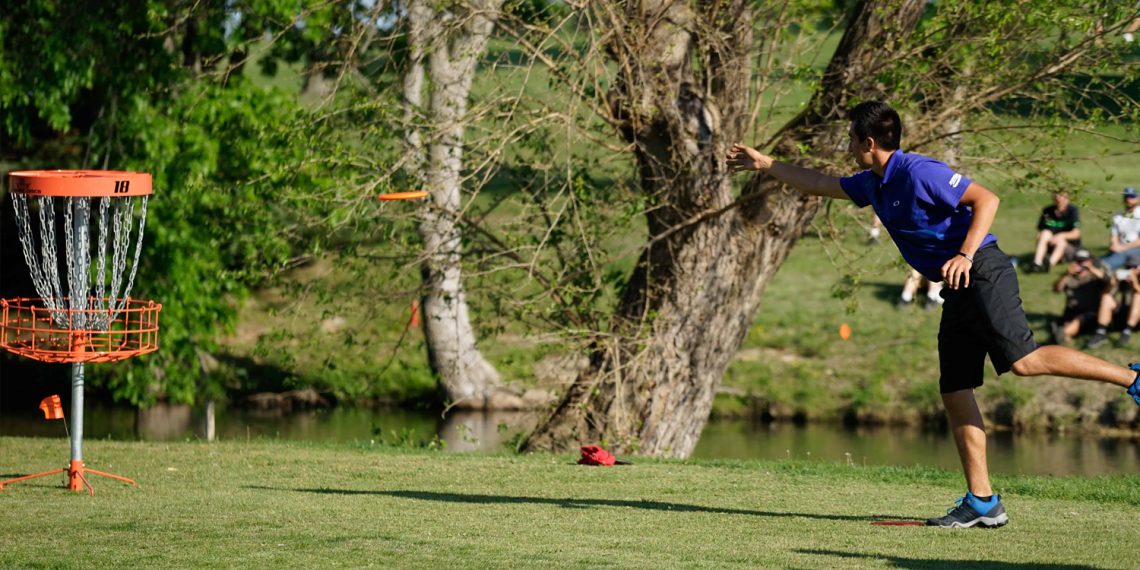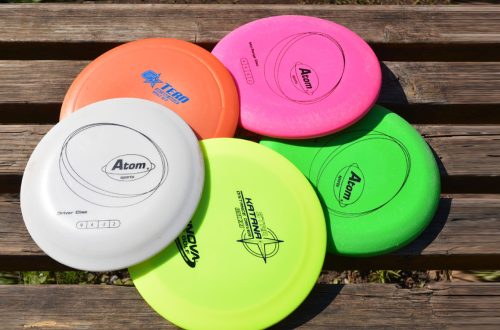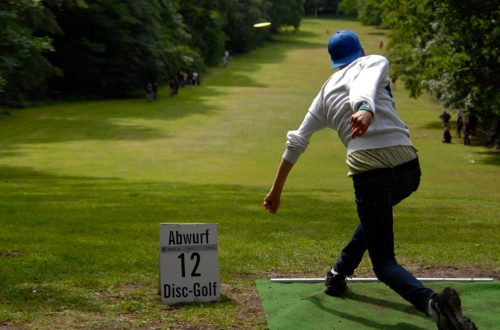Disc golf is a sport that has exploded in popularity over the last decade. Using flying discs similar to Frisbees, players attempt to traverse the course and complete each hole in the fewest number of throws. Excellent disc golf play requires the mastery of several key techniques. This article will explore the fundamentals that all disc golfers should know.
Driving Off the Tee
The initial drive off the tee box establishes the position for the rest of the hole. A perfect drive will fly fast and straight, landing close to the basket. Several factors influence tee shot success.
First, proper grip is essential. Most players use a power grip, with the index finger curled under the disc’s rim and the remaining fingers squeezed on top. This creates a firm hold to impart spin. Grip too tightly and release will be difficult; too loose allows wobble. Practice helps find ideal grip pressure.
Next, good form starts with a balanced stance, feet shoulder-width apart. Shifting weight to the back foot loads power, then driving forward transfers momentum to the disc. Keeping the elbow high on the reach-back prevents rounding, while a flat, smooth release sends the disc on a straight path. Follow-through concludes the motion.
Discs also matter for distance off the tee. Drivers have sharp rims and streamlined shapes to cut through the air. Choosing a disc suited for your skill level gives better control. Lastly, a smooth x-step or multiple steps during the run-up build acceleration for more driving power.
In summary, proper grip, balanced footing, an elbow-high reach-back, smooth release, disc choice, and an accelerating run-up all contribute to tee shot success.
| Aspect | Technique |
|---|---|
| Grip | Power grip with index finger under rim |
| Stance | Feet shoulder-width apart |
| Reach-back | Keep elbow high to prevent rounding |
| Release | Flat and smooth |
| Disc | Driver suited to skill level |
| Run-up | X-step or multiple steps for acceleration |
Accuracy Approaching
Approach shots take over once near the basket. Accuracy is now the priority rather than max distance. Success depends on precise angle control, finesse throws, and specialty discs.
For tricky approach angles, release angle and snap matter most. A hyzer sends the disc right, while an anhyzer curves left. Essential approach techniques include the backhand, sidearm, overhand, and forehand throws. Each applies torque to the disc differently. Gripping the rim’s inner or outer edge also alters release.
Touch shots demand a gentle throwing motion. This prevents overshooting the target. A fan grip with spread-out fingers allows spin manipulation. Approach discs like the mid-range and putter have blunt rims and curved profiles for gliding to the pin. Learning disc flight patterns aids shot selection.
In summary, angle control, specialty throws, finesse motions, approach discs, and understanding flight physics are key to accurate placement near the basket.
Sinking the Putt
Putting completes the hole once below the basket. While short, putts require immense finesse and mental focus. Proper form, reading the green, and concentration make putts routine.
Stance and grip come first. Feet shoulder-width apart balanced on the toes with knees bent enables full body motion. A finger-under-rim grip provides stability, while the thumb on top adds spin. Keeping wrists firm and elbow in prevents wavering.
Reading the slope and speed of the green helps select aim. Uphill putts need more power while downhill require checking momentum. Sidewind and slick grass also alter trajectories. Adjust force, angle, and release point to account for conditions.
Finally, consistent putting requires extreme mental focus through routine and repetition. Visualizing the shot’s path before settling in calms nerves. Smoothly drawing the disc back and swinging forward with eyes locked on the chains develops “muscle memory” for reliability.
With proper mechanics, green reading skills, and a focused mindset, dependable putting from any distance can be achieved.
To sum it up, strong Disc Golf fundamentals in driving, approaching, and putting will rapidly improve any player’s capabilities. As with any sport, practice remains essential for honing techniques and internalizing skills. Mastering these core components of the game provides the foundation for rising in competitive rankings while also simply enjoying disc golf recreationally. With hard work and persistence, low scores and consistent performance are within reach.





